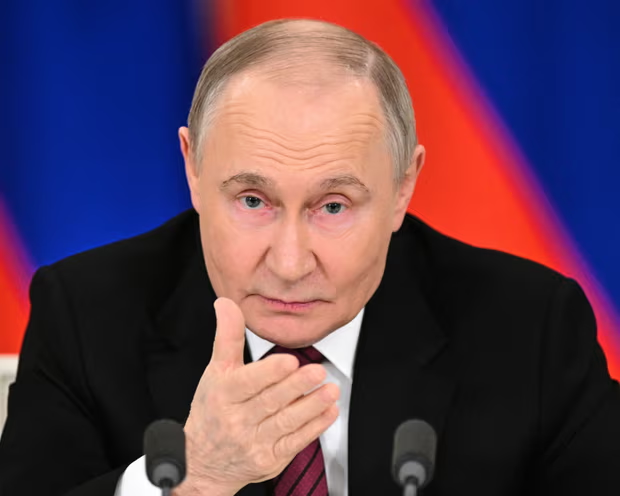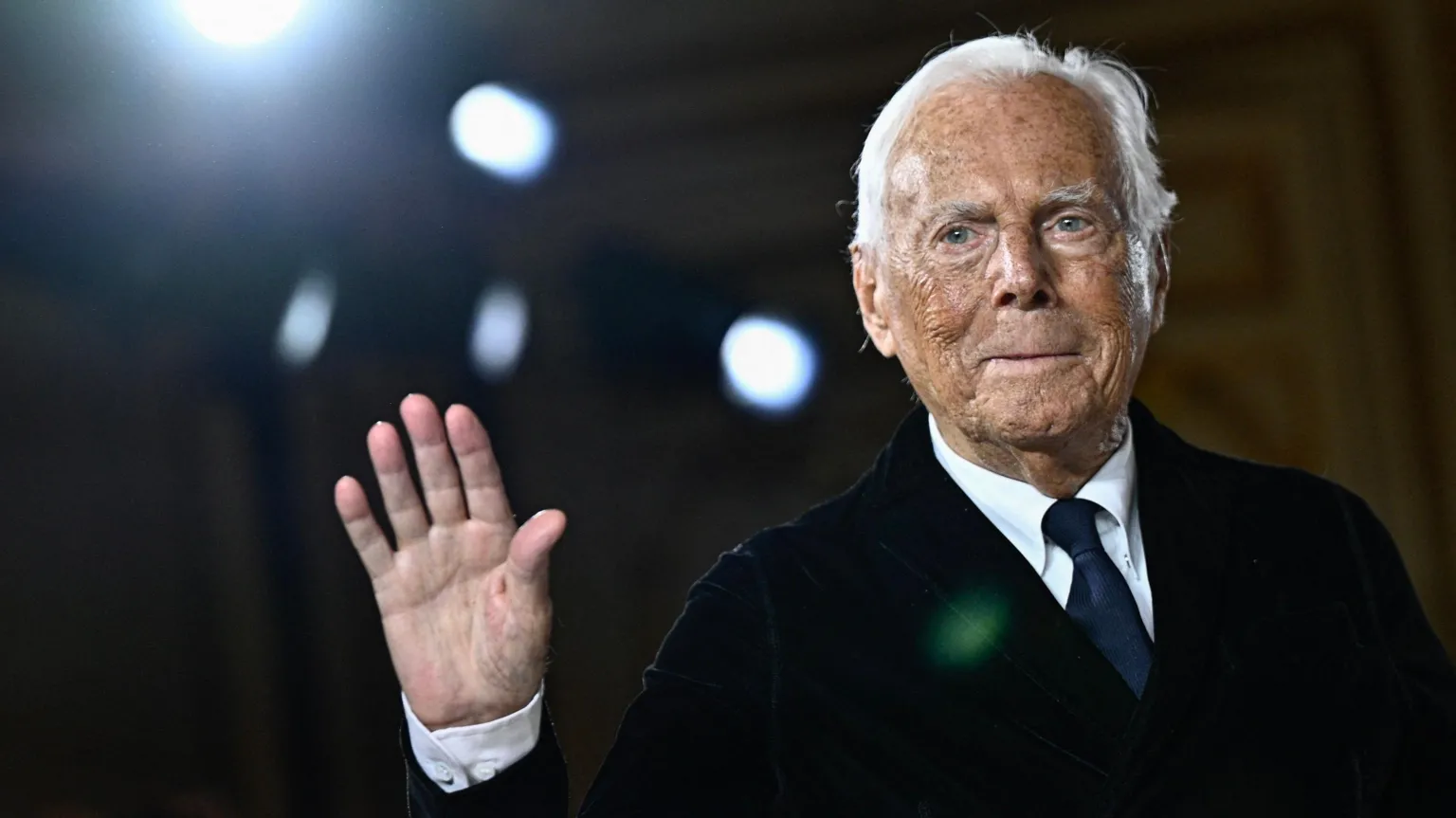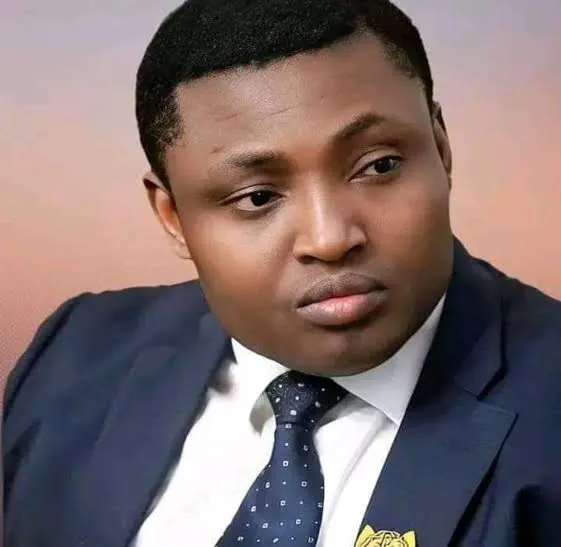Leaders of Britain, France, Germany and Poland told Russian president to accept unconditional 30-day ceasefire by Monday or face increased sanctions and weapons transfers to Ukraine
Vladimir Putin has rejected an ultimatum from European leaders to agree to a ceasefire with Ukraine or face intensified sanctions. However, he has suggested holding direct negotiations with Kyiv later this week.
The leaders of Britain, France, Germany, and Poland told the Russian president that he must agree to an unconditional ceasefire by Monday or face further sanctions and increased military support to Ukraine.
“We, along with the US, are challenging Putin. If he truly wants peace, now is the time to show it,” said UK Prime Minister Keir Starmer during a joint press conference with the five leaders in Kyiv.
Starmer emphasized that the leaders were demanding an unconditional ceasefire, rejecting Putin’s terms, and warned that if he refused peace, they would increase sanctions and ramp up military aid to Ukraine to pressure Russia back to the negotiating table.
Starmer, Emmanuel Macron, and Friedrich Merz arrived in Kyiv on the same train on Saturday morning, while Donald Tusk traveled separately. The leaders met with President Zelenskyy for discussions in central Kyiv. This was Macron’s first visit to Kyiv since the summer of 2022, and Merz’s first visit as Chancellor.
“All five leaders had a productive call with @POTUS, focusing on peace efforts,” Ukraine’s foreign minister Andrii Sybiha posted on X, sharing a photo of the leaders gathered around a mobile phone in speaker mode.
Sybiha added, “Ukraine and all allies are prepared for a full, unconditional ceasefire—on land, air, and sea—for at least 30 days starting Monday. If Russia agrees and effective monitoring is ensured, this ceasefire and confidence-building measures could lead to peace talks.”
In response to the ultimatum, Putin rejected the call for a ceasefire during a press briefing for Russian media and international outlets early Sunday morning. However, he expressed his willingness for direct talks with Ukraine and suggested that delegations from both sides could meet in Istanbul this Thursday to begin discussions. “We do not rule out that during these talks we could agree on new ceasefires,” Putin said.
Macron responded to Putin’s proposal on Sunday, calling it “a first step, but not enough.” The French president stated that “an unconditional ceasefire should not be preceded by negotiations,” adding that Putin seemed “to be looking for a way out, but he is still trying to buy time.”
Ukraine and European capitals have previously insisted that a full ceasefire be a precondition for starting negotiations. Putin left the briefing without answering any questions, after journalists had been waiting for up to seven hours.
There was no immediate statement from the White House regarding the call or any potential commitments from Trump if Putin rejects the ceasefire.
Trump and his administration have suggested that a 30-day ceasefire could serve as a first step toward a sustainable peace deal. While Ukraine has expressed its readiness to implement such a ceasefire, Russia has refused unless all Western arms shipments to Ukraine are halted.
Dmitry Medvedev, the hawkish former Russian president, responded dismissively to the ultimatum, stating on X: “Macron, Merz, Starmer, and Tusk were supposed to discuss peace in Kyiv. Instead, they are issuing threats against Russia…You think that’s smart? Shove these peace plans up your pangender arses.”
Meanwhile, Russia declared a unilateral three-day ceasefire starting May 8, which Kyiv argued was aimed at preventing Ukrainian drone strikes during Victory Day celebrations in Moscow. The parade, marking the 80th anniversary of the Soviet victory in World War II, saw Xi Jinping and Luiz Inácio Lula da Silva among world leaders in attendance. Despite the ceasefire, fighting continued on the frontlines, though Russia refrained from major drone and missile attacks on Ukraine.
Starmer criticized Putin’s inconsistency, stating, “Putin didn’t need conditions when he wanted a ceasefire for a parade, and he doesn’t need them now. Ukraine has shown willingness to engage repeatedly, but Putin has consistently refused.”
Starmer also commented on the lessons of World War II, saying, “We understand history’s lessons, unlike Putin. There is no glory in aggression; true glory lies in defending your country and achieving peace.”
Macron referenced VE Day and highlighted that “the defense of the principles on which our continent and the international order is based” was at stake in the Ukraine war.
The European leaders visited Kyiv’s Maidan with Zelenskyy and his wife Olena Zelenska on Saturday morning, where they paid their respects to those killed in the war and observed a moment of silence before heading to discussions with the Ukrainian president.
Meanwhile, Trump has yet to publicly comment on his conversation with the European leaders. In a press conference on Friday, he was asked if he had a message for Putin and replied, “I have a message for both sides: end this war. Get it finished. That’s my message for both of them.”
While the Trump administration has been more critical of Kyiv’s stance, there are signs that the mood in Washington may be shifting, especially following a positive meeting between Trump and Zelenskyy at the Vatican.
Even JD Vance, the vice president, who has been a prominent critic of Ukraine aid, recently stated, “The Russians are asking for too many concessions to end the conflict.”
On Friday night, the US embassy in Kyiv issued a warning about a “potentially significant air attack” that could occur in the coming days. It later emerged that Russia would close its airspace over the Kapustin Yar missile testing range on Monday and Tuesday, raising concerns about possible ballistic missile launches.








